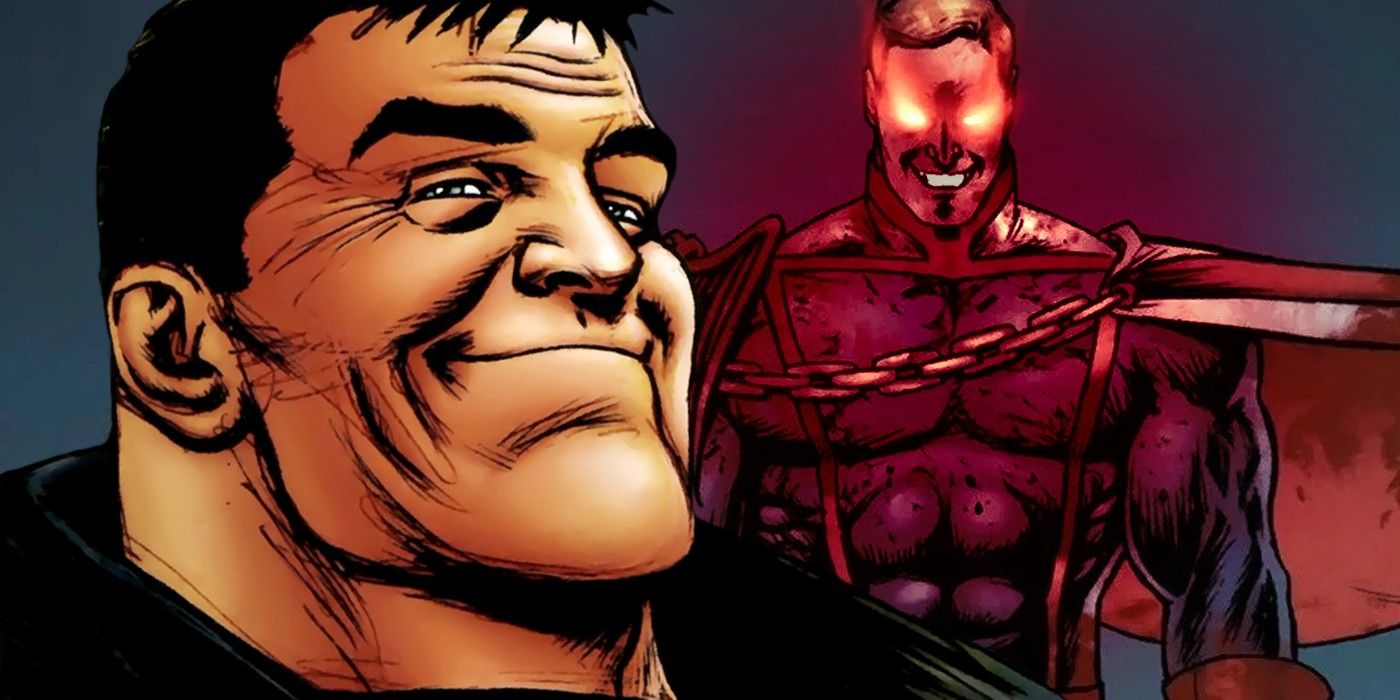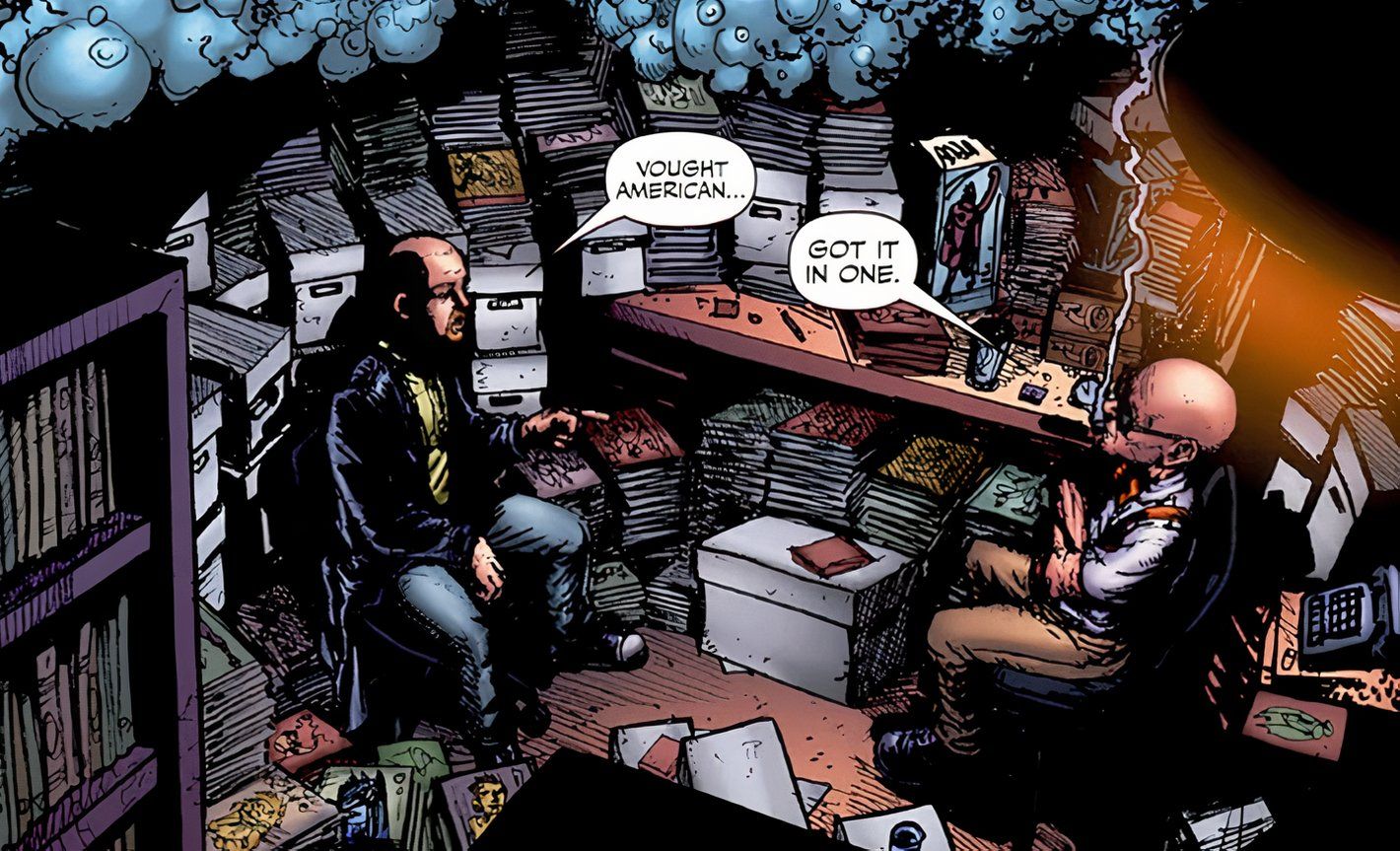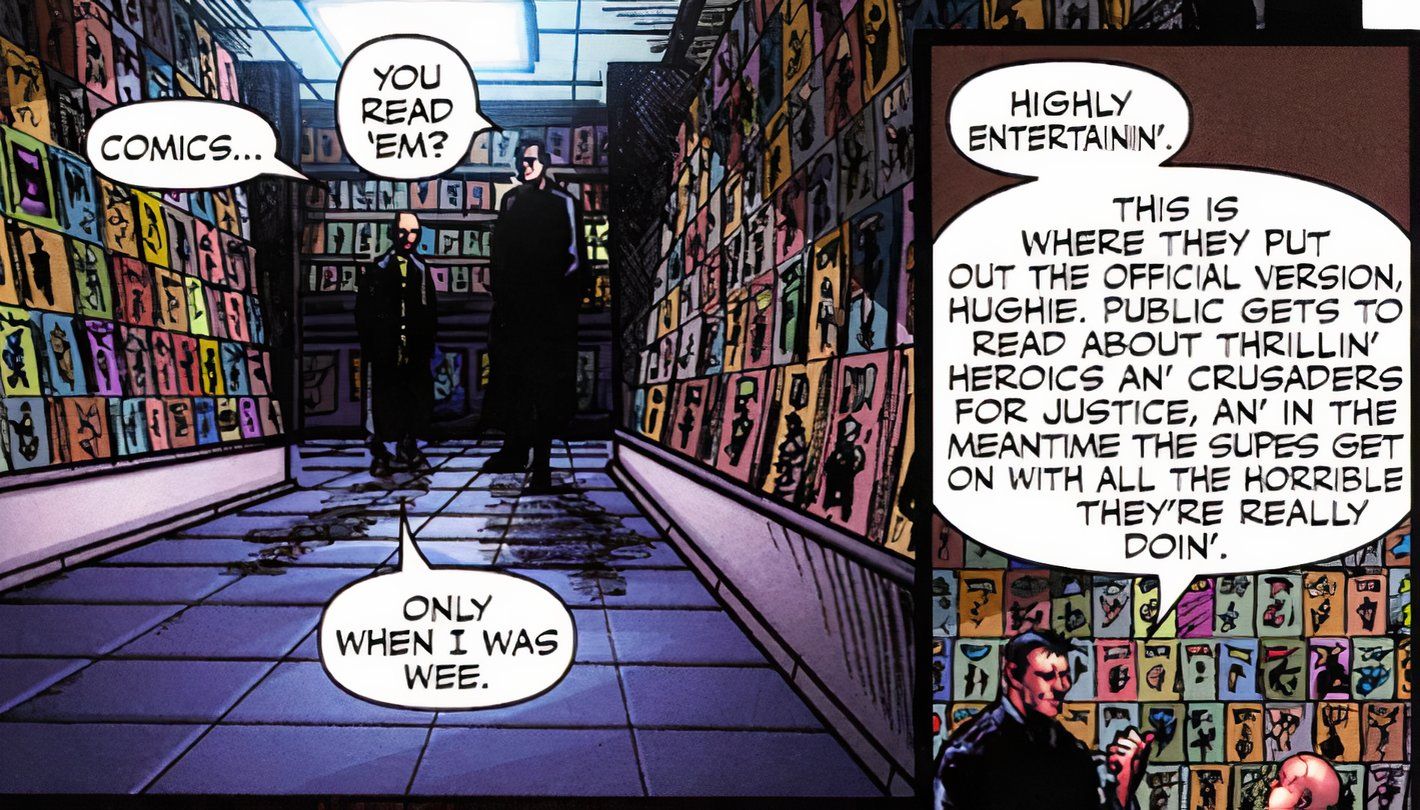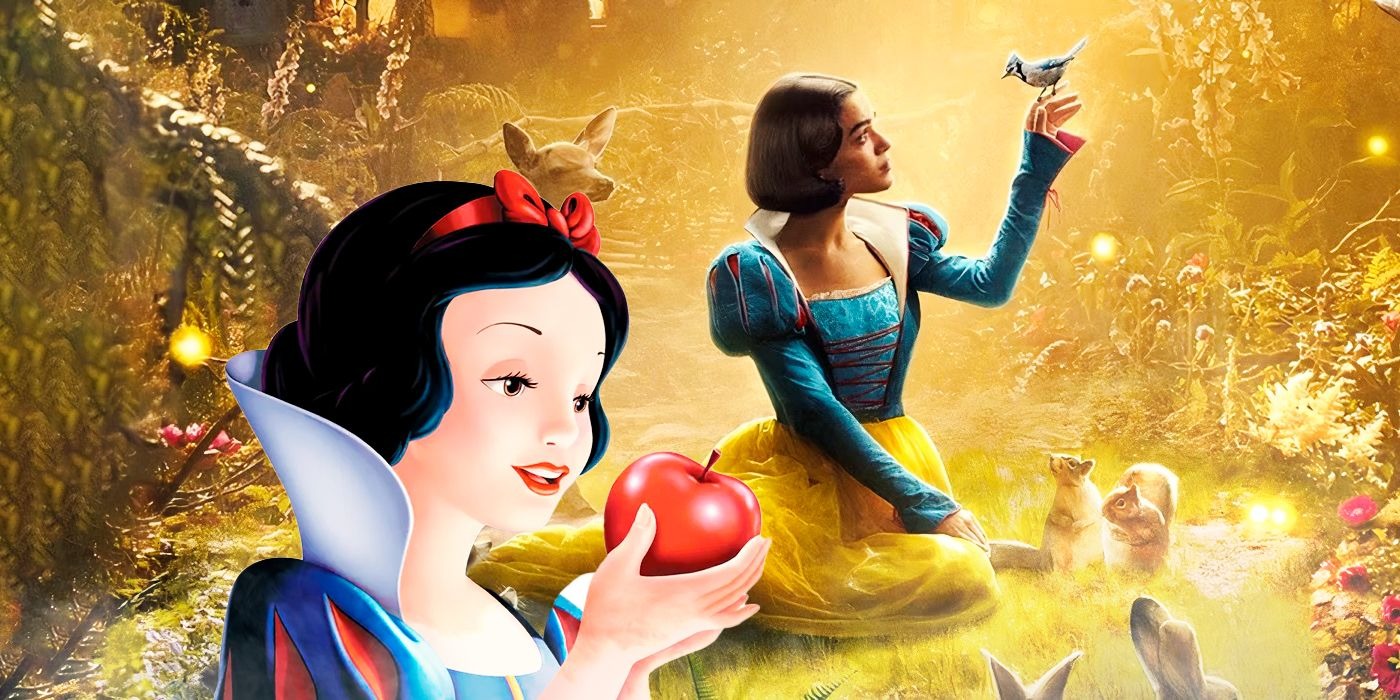
Though Homelander served as the primary antagonist of The Boys, and Billy Butcher proved to be the final “Big Bad” of the series, the true villain of the story was Vought-American, the corporation that created supes and then let them run amok in the world. All the evil witnessed in the comic can be traced back to Vought’s relentless drive for profit and power.
The Boys #19 – written by Garth Ennis, with art by series co-creator Darick Robertson – offered foundational context for the series, by revealing the history of Vought to Hughie Campbell, and by extension, providing the reader with crucial exposition for understanding the overall themes of the series.

Garth Ennis’ superhero satire series was first and foremost a study of the abuse of power, and underlying its use of superheros to affect this critique was a deep opposition to the worst possibilities of capitalist enterprise – represented in The Boys by Vought-American.
Vought-American Is The Real Evil At The Heart Of “The Boys”
The Boys #19 – Written By Garth Ennis; Art By Darick Robertson; Color By Tony Aviña; Lettering By Simon Bowland
Vought-American sought wealth and power at a great human cost, and directly incited all the suffering that occurred in The Boys , making them the true villain of the series.
Underneath its avalanche of foul language and gruesome gore, The Boys offered a morally complex fictional world, one that embodied a coherent social critique. Essential to this was Garth Ennis’ depiction of Vought-American, a corporation that was depicted as having effectively established hegemony over the United States, and to a degree the rest of the world, through their proprietary discovery: Compound V, the formula for creating “supes.” By introducing superpowered individuals to the world, Vought-American irrevocably changed human history – but as The Boys #19 revealed, the company had a tangible negative influence on the 20th century even before creating supes.
In The Boys #19, Hughie Campbell visits the Stan Lee-analogue known as the Legend, who tells him the true story of Vought-American. He explains that the company, originally Vought American Consolidated, began as a weapons manufacturer; as it turns out, Vought was criminally corrupt as far back as World War II, selling the United States fighter jets that had been rushed into production with serious design flaws. Later, they caused the deaths of American soldiers in Vietnam by supplying them with defective weapons.
To some degree, The Boys was always structured around reveals such as the one in issue #19. By design, Hughie served as the readers’ focal character throughout the series, steadily discovering the horrible true nature of supes and the world of The Boys . More than any action beat, or character death, readers following the book on a monthly basis during its run came to anticipate arcs that offered the next level of insight into the greater story.
The creation of supes was an extension of Vought’s for-profit weapons development program. As the Legend emphasizes to Hughie, supes were simply the first time the company created a successful product –but their goal, and their willingness to sacrifice people to achieve it, remained the same. Vought-American sought wealth and power at a great human cost, and directly incited all the suffering that occurred in The Boys, making them the true villain of the series. In other words, the series’ characters are the unwitting cast of a tragedy, the conditions for which were set by Vought.
In “The Boys”, Supes Represent Power – & Vought Controls The Supes
A Vast Conspiracy (Or Just Business As Usual)
Just as Homelander was an extreme analogue for Superman…Vought-American ruthlessly reflected the worst attributes of some real-life corporations.
With The Boys, Garth Ennis did more than just undermine the conventions of the superhero genre – he offered a meditation on the nature of power, and its corrupting influence. He effectively used superhero characters as a metaphor to serve this end; for the majority of the series, however, The Boys‘ supes existed within a hierarchy which placed the upper echelon of Vought-American’s executives above them. This is why the company should be looked at as the central “villain” of the series, even if it filled this role in a non-conventional way.
The Boys was, after all, a non-conventional series – though as absurd and abrasive as it consistently was, it was consistently more grounded than the traditional superhero stories it skewered in certain key regards. One of these was its coldly pessimistic depiction of a corporation that is willing to directly endorse mass suffering in order to perpetuate its success. Just as Homelander was an extreme analogue for Superman, and all The Boys supes viciously parodied some familiar comic book character or another, Vought-American ruthlessly reflected the worst attributes of some real-life corporations.
Vought Relied On Supes Heinous Behavior In Order To Control Them
Calculated SufferingAs it became more successful, and came to envelop more subsidiary companies across more industries, the rate of suffering Vought-America viewed as acceptable increased exponentially.
A key part of The Boys was the role comic book representations of its “real” superheroes played in the world of the story. The supes “heroic” exploits were chronicled in comic books, published by a subsidiary of Vought – creating a significant revenue stream, but more importantly, a means of controlling the narrative about supes behavior. Behind the scenes, this allowed supes to get away with literal murder, as well as every other entry on the list of worst crimes imaginable. This, in turn, was a tactical consideration on Vought-American’s part, as it helped them maintain control of the supes.
In this way, Vought was at the center of a matrix of control in The Boys, creating multiple points of tension that eventually converged in a characteristically bloody climax to the series. What is important to note is that Vought did more than just cover up the rampant misdeeds of its supes – the company endorsed and encouraged the supes excesses, establishing that the corporation is evil on a massive scale that the crimes of not even the worst supe can be measured against.

Of the lessons that Vought learned from its failures in World War II and Vietnam, which it applied to its success with supes, the most critical was that it was willing to accept a calculated amount of suffering in order to make money. As it became more successful, and came to envelop more subsidiary companies across more industries, the rate of suffering Vought-America viewed as acceptable increased exponentially. In this way, Garth Ennis commented on a very real phenomenon, using the superhero genre to achieve a potent critique of unsustainable for-profit industry.
The Boys TV Adaptation Extends The Franchise’s Corporate Critique
Vought-American Became Vought-International
The TV version [of The Boys ] has the opportunity to center Vought as the true villain of the story even more definitively than Garth Ennis’ original story did.
The television version of The Boys makes significant changes to its source material – as does any ongoing adaptation, of course – but the spirit of the comic’s critical stance on unchecked corporate power remains in place. Vought, rebranded as Vought-International, remains at the center of the story. What remains to be determined is what role it will play down the final stretch of the show’s run, and whether its true villain status could be emphasized even more strongly than in Garth Ennis’ original story.
At least one fundamental element of the comic’s ending has already been changed by the series, leaving it wide open to fan speculation about how the conclusion to Amazon’s The Boys will play out in comparison. One thing that means is that the TV version has the opportunity to center Vought as the true villain of the story even more definitively than Garth Ennis’ original story did. Vought-American underwrote all the horrors and pain of The Boys, causing its villain to far exceed any single character’s worst actions.

